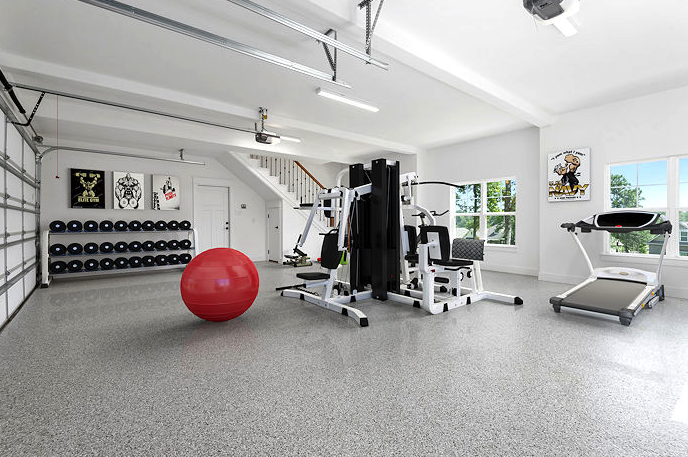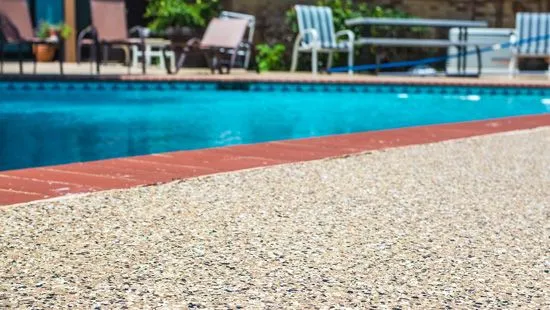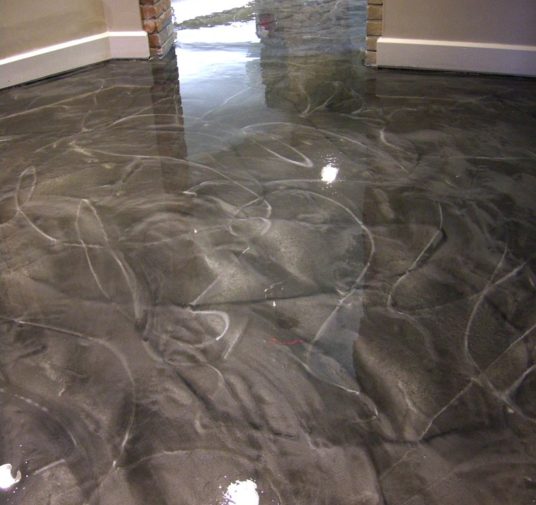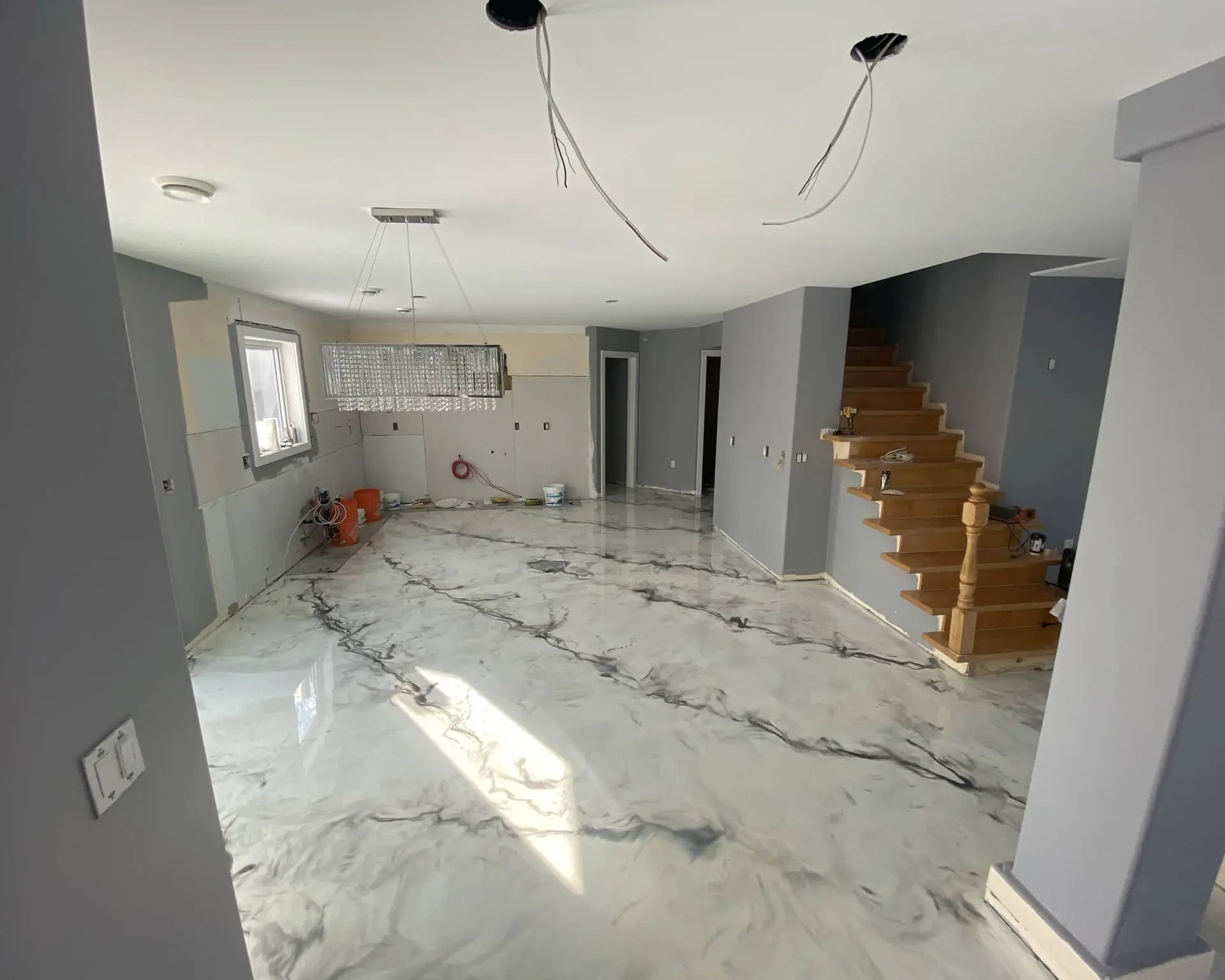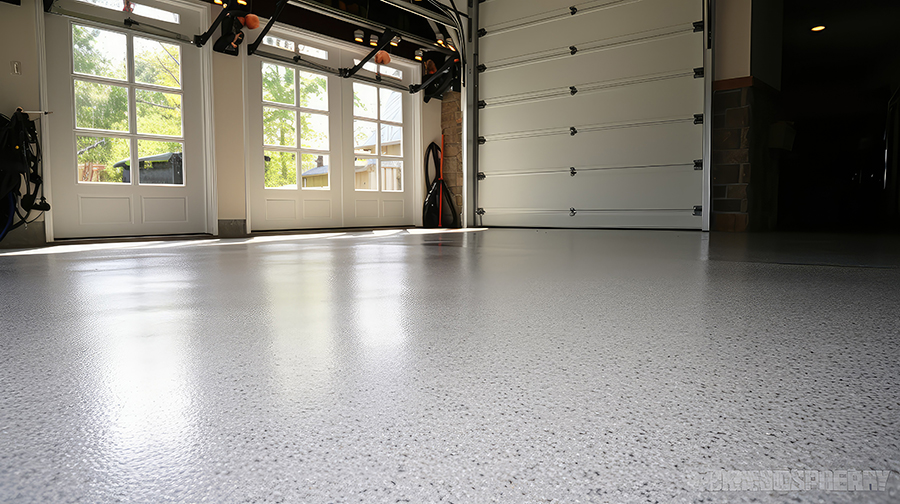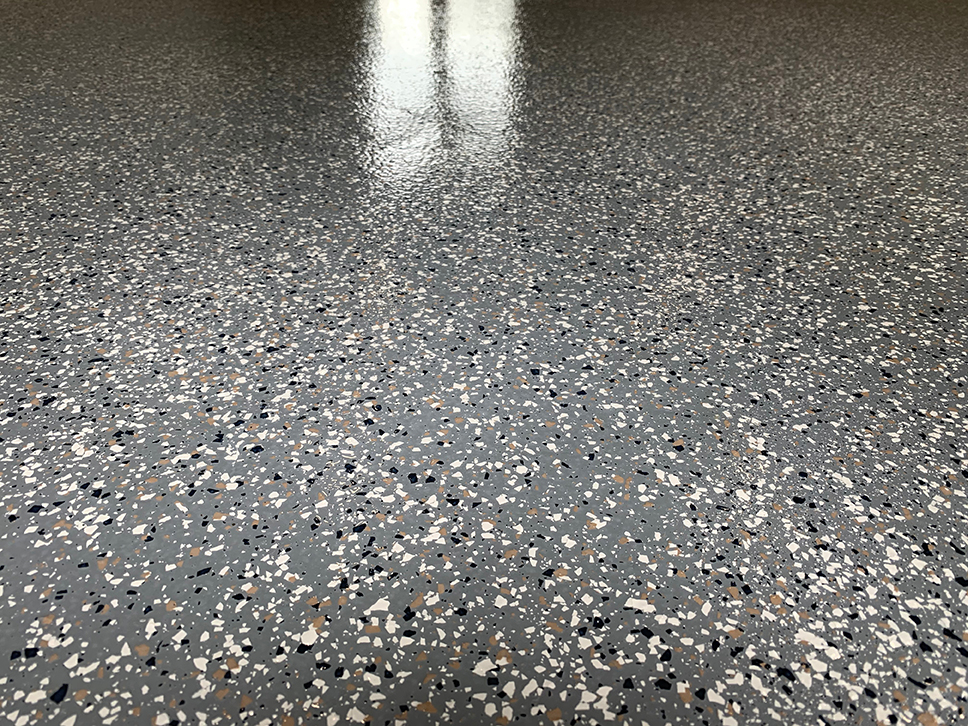Is Epoxy Flooring Eco-Friendly? Understanding the Sustainability of Epoxy Coatings
Epoxy flooring has grown in popularity for garages, basements, patios, and pool decks. It’s durable, looks great, and requires little maintenance. But as more people consider sustainability, many wonder, is epoxy flooring eco-friendly? At Profeta Garage Floors, co-owner Anthony Imburgia stresses the importance of offering high-performing products that also consider environmental impact. Epoxy’s sustainability comes from its long lifespan, reduced maintenance needs, and minimal waste during installation.
What Makes Epoxy Flooring Eco-Friendly?
The key to epoxy’s sustainability lies in its entire life cycle. From installation to maintenance and its durability over time, epoxy flooring offers several environmental benefits.
1. Long Lifespan Reduces Waste
One of epoxy flooring’s greatest strengths is its long-lasting nature. With proper care, epoxy can last for decades. That means homeowners don’t need to replace it as often as other materials like vinyl or carpet. Fewer replacements mean less waste in landfills.
Anthony Imburgia explains, “Epoxy floors can last 20 years or more. That’s fewer replacements and less material going to waste.” In areas like garages, basements, and patios, where moisture and wear are constant, traditional floors can fail. Epoxy, however, withstands harsh conditions, reducing the need for frequent updates.
2. Low Maintenance Saves Resources
Epoxy’s low maintenance needs are another reason it’s an eco-friendly option. Unlike other flooring types, epoxy doesn’t require harsh chemicals or excessive water for cleaning. Simple, eco-friendly solutions, like water and mild detergents, keep epoxy floors in top shape.
For garages or basements, where dirt, grime, and chemicals can accumulate, this low-maintenance feature is a big advantage. With less water and fewer cleaning agents, epoxy floors help reduce the environmental footprint of a home.
3. Minimal Use of Harmful Chemicals
One concern with many home products is the emission of volatile organic compounds (VOCs), which can harm indoor air quality. However, many modern epoxy flooring solutions come in low-VOC formulations. This means they release fewer harmful chemicals during application and use.
Imburgia adds, “We use low-VOC epoxy products, especially in basements or enclosed garages. It’s safer for both families and the environment.” For homeowners focused on indoor air quality, epoxy’s low-VOC options offer a safe, eco-conscious alternative.
4. Energy Efficiency
Epoxy floors reflect light, making spaces brighter without additional lighting. In garages and basements, where lighting is often limited, this reflective quality can reduce energy usage. With better lighting, homeowners may rely less on artificial sources, lowering their overall electricity consumption.
For patios and pool decks, epoxy can help manage temperature by reflecting sunlight. This feature keeps surfaces cooler, reducing the need for additional cooling methods like sprinkling water on hot decks. This not only makes the space more comfortable but also conserves water and energy.
5. Minimal Installation Waste
Epoxy flooring is installed directly onto existing concrete surfaces. This means homeowners don’t need to tear out and dispose of old flooring materials, reducing the amount of waste sent to landfills. During installation, epoxy doesn’t need to be cut or shaped like tile or wood, which further minimizes waste.
For garages and basements, where concrete floors are already in place, epoxy is the ideal eco-friendly solution. It eliminates the need to replace or discard large amounts of old material.
6. Weather and Chemical Resistance
Epoxy floors stand up to harsh chemicals and extreme weather. This durability makes them ideal for patios, garages, and pool decks, where exposure to elements like water, chemicals, or UV rays is constant. Unlike wood or stone surfaces that may need regular replacement, epoxy retains its appearance and strength, reducing the environmental impact of frequent repairs.
This weather resistance also reduces the need for harsh cleaners or sealants. Less maintenance equals fewer harmful chemicals in the environment and more time between repairs or replacements.
Why Epoxy Flooring Stands Out
Epoxy flooring offers more than just a durable surface. It provides an eco-friendly option that requires fewer resources, lasts longer, and results in less waste over time. Each part of its life cycle contributes to making it a sustainable choice for residential spaces like garages, basements, patios, and pool decks. From installation to maintenance, epoxy helps homeowners achieve a lower environmental footprint while maintaining a high-performance surface.
Anthony Imburgia points out, “With epoxy flooring, you’re not just getting a durable floor. You’re choosing a product that’s built to last and designed with sustainability in mind.”
Conclusion: Why Epoxy Flooring is an Eco-Friendly Choice
In conclusion, epoxy flooring offers multiple environmental benefits. Its durability, low maintenance needs, and minimal installation waste make it a sustainable option for homeowners. At Profeta Garage Floors, Anthony Imburgia and his team prioritize both the performance and environmental impact of their products. Epoxy floors, with their long lifespan and eco-friendly properties, offer a responsible choice for anyone looking to upgrade their garage, basement, or outdoor spaces.
Contact us today to learn more about how we can transform the floors in your home!


